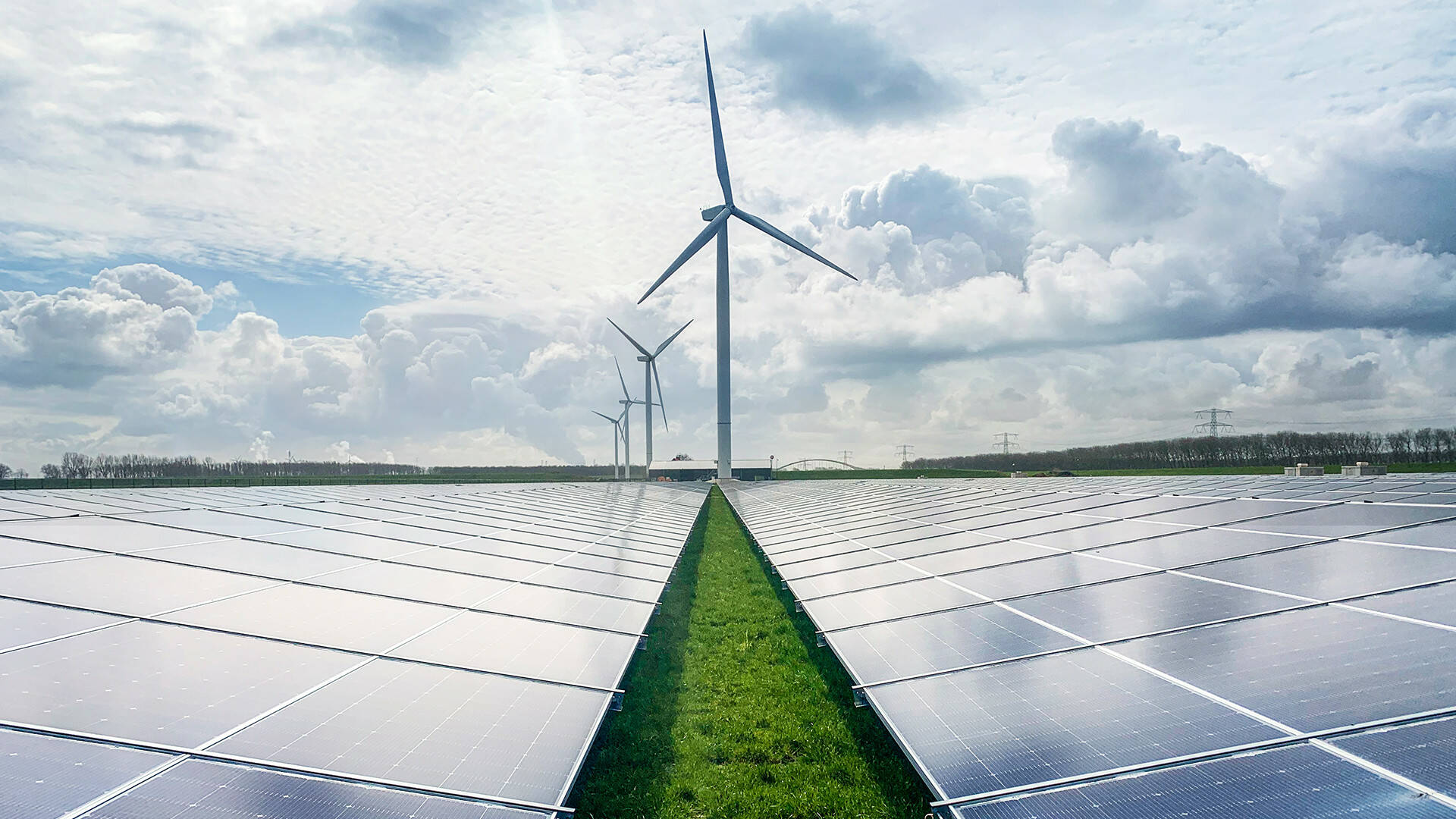
Solar installer, PerPetum, on the route to faster rollout
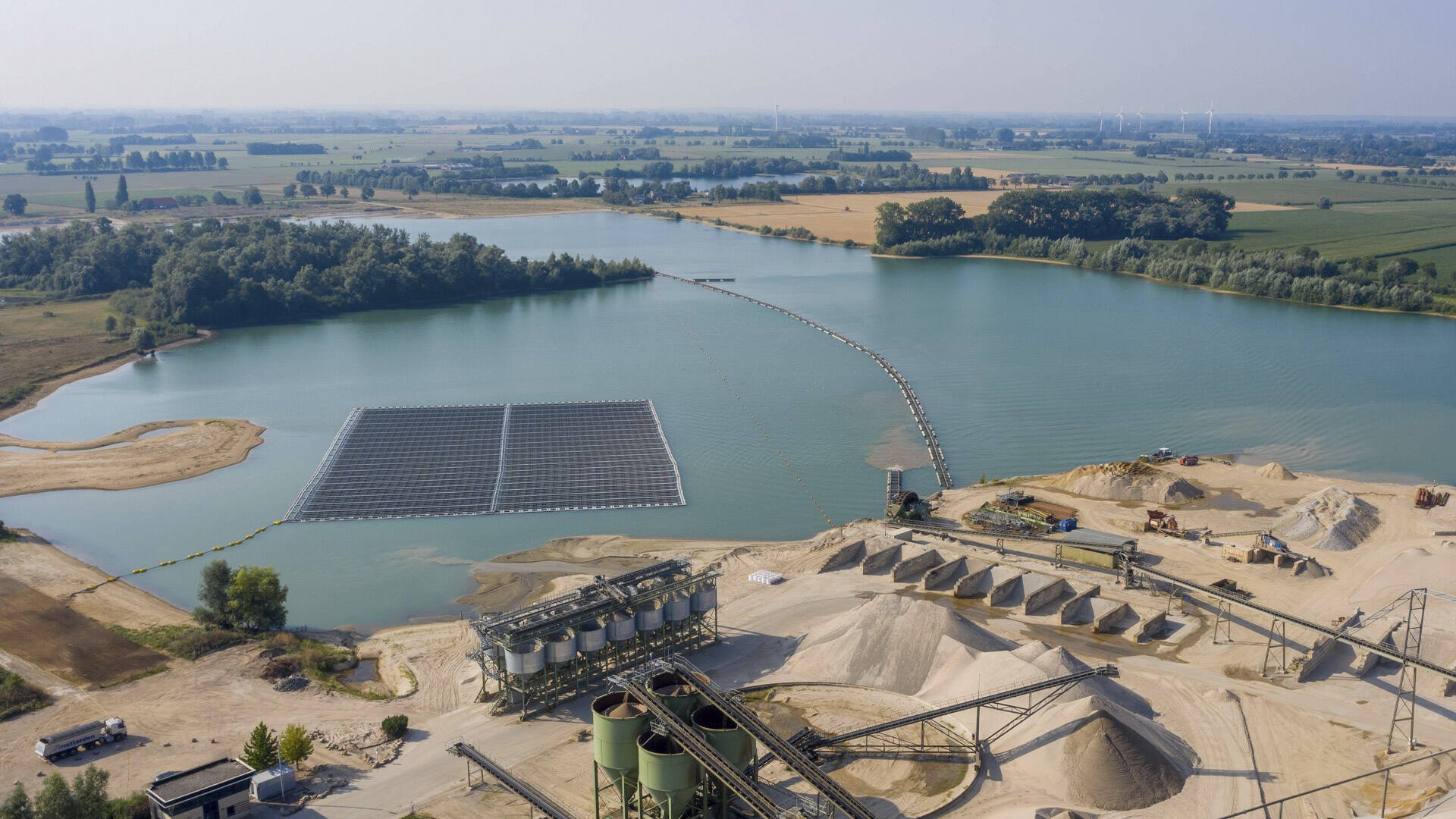


Go to next article

Go back
scroll down

We have experience of working with Alfen on our largest, most complex projects. It is our strategic partner for grid solutions and transformer substations in the Netherlands. Our first project together was in the municipality of Ter Apelkanaal, with a total capacity of 15.4MW, and it gave us experience of working collaboratively to find the best solution for the grid, optimise transformer setup and drill underground to install 1.2km of medium voltage cabling. Alfen’s expertise, capability and product quality are key for us but we especially like its willingness to partner with us to find optimal solutions. We understand each other and are able to truly talk in-depth about the technology.
Can you tell us about your relationship with Alfen and how it adds value?
Solar is often decentralised but distribution grids struggle to accommodate it. How do you deal with that?
The grid is still a challenge. We’re not there yet. Decentralised solutions could well be a suitable option for large consumers like factories. Other parts of the market are increasingly moving towards storing surplus energy in batteries which then provide power when there is no sun. We are pushing innovation to see how we can integrate storage to reduce grid impact. To go even further, we might perhaps need to drive decentralisation to the point that we start working with local grids, to supply local factories directly, or ensure new factories are built in locations where large solar parks can reduce the need for transmission.
Generally, larger-scale projects require the same amount of work of as smaller projects. In fact, smaller projects can be more complex because they offer less flexibility for project configuration and grid layout. I think PerPetum’s decision to focus only on large projects has led to the strong growth of the company in the last three years – because the same resource delivers more value.
I am also seeing solar developers face more resistance from local communities and I think there is scope for more pro-active community engagement and, perhaps, to let communities benefit from either cheaper energy or profit share.
“ We need to innovate further with technology and generate positive mindsets ”
Can solar meet our energy requirements and how is the market developing?
Solar can definitely meet a major part of our energy needs but there are two required elements for achieving this from my perspective; continuous innovation of technology and integrated smart solutions, and generating positive mindsets and acceptance amongst people. Fortunately, things are looking bright on both fronts.
Three years ago, we were talking about 200Wp solar panels and, today, it is 500-600Wp panels, with 10-15 panels able to generate enough energy to meet a single household’s needs. There is still a great deal of innovation required though, particularly around creating solutions by interconnecting several projects and integrating technologies, for example, solar, batteries and wind energy to provide energy for large-scale consumers.
Mindsets are also increasingly moving in the right direction. For a long time, countries were still focused on oil, gas and nuclear power stations but these are now either being decommissioned or are proving to be very expensive to build and maintain. Solar is a much cheaper alternative, the resource is free and maintenance is much easier and, as more people understand this, the potential grows. Governments are showing interest, the technology is accepted and so financing is readily available.
In the Netherlands, there are two major challenges for the future of energy: space and grid capacity. As a comparatively physically small, densely populated country with lots of nature reserves, space is limited. Obviously, there is roof top space but not all roofs are suitable for PV due to the size or quality of the buildings. Most municipalities/ governments are also not set up to enable rapid implementation of solar. Permits are unnecessarily complex, with some very long lead times. Procedures and permits need to be simplified in order to build faster - we need to unify, set some goals and then work together to achieve them.
Can you begin by introducing yourself and PerPetum?
I joined PerPetum in 2018 as Regional Manager for the Netherlands, focused mainly on turnkey and larger scale projects for our industrial customers. My background is in information technology, business management and business transformation and I started my career in the healthcare world, at Philips, which provides innovative solutions to improve peoples’ health worldwide. I consider PerPetum to have parallel goals as it is also improving people’s health by reducing pollution and contributing to a healthier planet.
At present, PerPetum has a project pipeline of 52MW in the Netherlands which equates to enough energy for more than 26,000 households. We have existing solar projects in multiple countries and three local offices. Our headquarters in Belgium act as a centre of excellence, where we can join forces to optimise technical solutions and share project management methodologies.
Our most unique advantage is our track record in four distinct construction types: on water, on roof, ground-mounted and carport. We have solid experience and are used to designing a solar solution to best fit the location, country and climate and, of course, increasingly everything is about energy management and we are used to incorporating that.
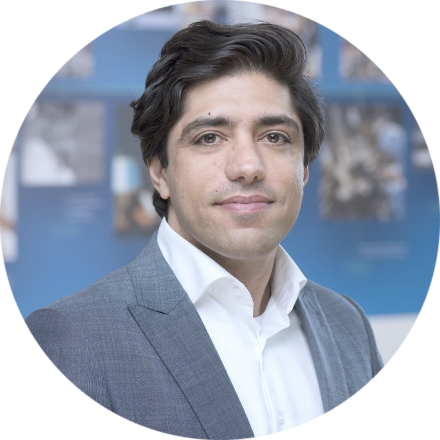
An interview with Vahid Kharidar,
Regional Manager at PerPetum
PerPetum designs, builds, owns and operates solar PV projects and is one of the largest installers in Benelux, with a track record in seven countries and local offices in Belgium and the Netherlands. Its clients are typically industrial, with significant energy consumption, and PerPetum enables them to implement and integrate renewable energy solutions. These include installation of solar PV on land, roofs, or water, with the final projects either owned by the client or financed by PerPetum and third parties and supported with a Power Purchase Agreement to provide financial certainty.
After gaining recognition for building the largest floating solar park in Benelux five years ago, the company has more recently constructed the world’s largest solar car park at Pairi Daiza zoo in Belgium, where it is headquartered. We caught up with Vahid Kharidar, PerPetum’s Regional Manager for the Netherlands, to learn more about PerPetum and get his view on where the industry is going and how fast.
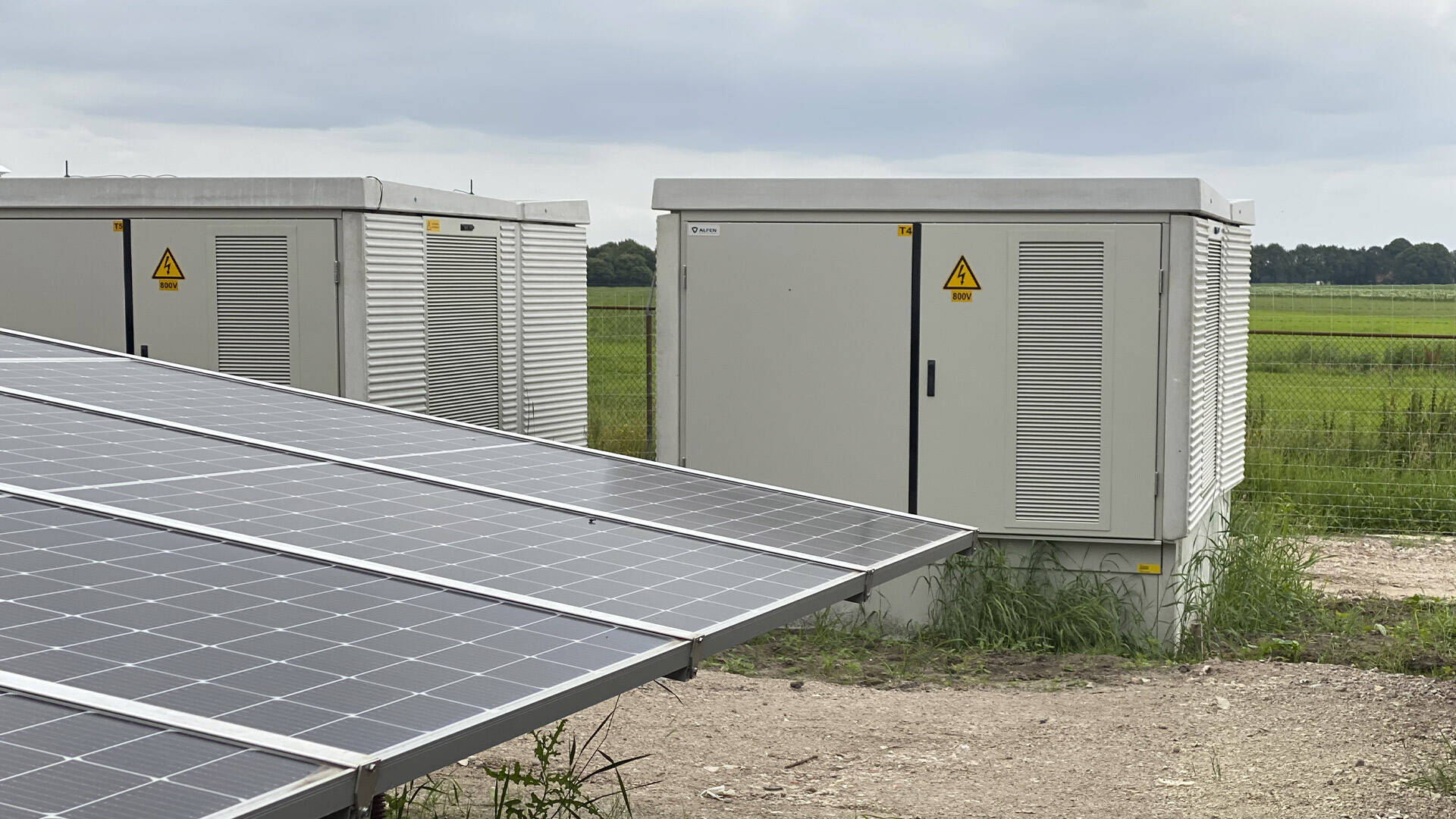

Solar installer, PerPetum, on the route to faster rollout



Go to next article

Go back
We have experience of working with Alfen on our largest, most complex projects. It is our strategic partner for grid solutions and transformer substations in the Netherlands. Our first project together was in the municipality of Ter Apelkanaal, with a total capacity of 15.4MW, and it gave us experience of working collaboratively to find the best solution for the grid, optimise transformer setup and drill underground to install 1.2km of medium voltage cabling. Alfen’s expertise, capability and product quality are key for us but we especially like its willingness to partner with us to find optimal solutions. We understand each other and are able to truly talk in-depth about the technology.
Can you tell us about your relationship with Alfen and how it adds value?
Solar is often decentralised but distribution grids struggle to accommodate it. How do you deal with that?
The grid is still a challenge. We’re not there yet. Decentralised solutions could well be a suitable option for large consumers like factories. Other parts of the market are increasingly moving towards storing surplus energy in batteries which then provide power when there is no sun. We are pushing innovation to see how we can integrate storage to reduce grid impact. To go even further, we might perhaps need to drive decentralisation to the point that we start working with local grids, to supply local factories directly, or ensure new factories are built in locations where large solar parks can reduce the need for transmission.
Generally, larger-scale projects require the same amount of work of as smaller projects. In fact, smaller projects can be more complex because they offer less flexibility for project configuration and grid layout. I think PerPetum’s decision to focus only on large projects has led to the strong growth of the company in the last three years – because the same resource delivers more value.
I am also seeing solar developers face more resistance from local communities and I think there is scope for more pro-active community engagement and, perhaps, to let communities benefit from either cheaper energy or profit share.

“ We need to innovate further with technology and generate positive mindsets ”
Can solar meet our energy requirements and how is the market developing?
Solar can definitely meet a major part of our energy needs but there are two required elements for achieving this from my perspective; continuous innovation of technology and integrated smart solutions, and generating positive mindsets and acceptance amongst people. Fortunately, things are looking bright on both fronts.
Three years ago, we were talking about 200Wp solar panels and, today, it is 500-600Wp panels, with 10-15 panels able to generate enough energy to meet a single household’s needs. There is still a great deal of innovation required though, particularly around creating solutions by interconnecting several projects and integrating technologies, for example, solar, batteries and wind energy to provide energy for large-scale consumers.
Mindsets are also increasingly moving in the right direction. For a long time, countries were still focused on oil, gas and nuclear power stations but these are now either being decommissioned or are proving to be very expensive to build and maintain. Solar is a much cheaper alternative, the resource is free and maintenance is much easier and, as more people understand this, the potential grows. Governments are showing interest, the technology is accepted and so financing is readily available.
In the Netherlands, there are two major challenges for the future of energy: space and grid capacity. As a comparatively physically small, densely populated country with lots of nature reserves, space is limited. Obviously, there is roof top space but not all roofs are suitable for PV due to the size or quality of the buildings. Most municipalities/ governments are also not set up to enable rapid implementation of solar. Permits are unnecessarily complex, with some very long lead times. Procedures and permits need to be simplified in order to build faster - we need to unify, set some goals and then work together to achieve them.
Can you begin by introducing yourself and PerPetum?
I joined PerPetum in 2018 as Regional Manager for the Netherlands, focused mainly on turnkey and larger scale projects for our industrial customers. My background is in information technology, business management and business transformation and I started my career in the healthcare world, at Philips, which provides innovative solutions to improve peoples’ health worldwide. I consider PerPetum to have parallel goals as it is also improving people’s health by reducing pollution and contributing to a healthier planet.
At present, PerPetum has a project pipeline of 52MW in the Netherlands which equates to enough energy for more than 26,000 households. We have existing solar projects in multiple countries and three local offices. Our headquarters in Belgium act as a centre of excellence, where we can join forces to optimise technical solutions and share project management methodologies.
Our most unique advantage is our track record in four distinct construction types: on water, on roof, ground-mounted and carport. We have solid experience and are used to designing a solar solution to best fit the location, country and climate and, of course, increasingly everything is about energy management and we are used to incorporating that.
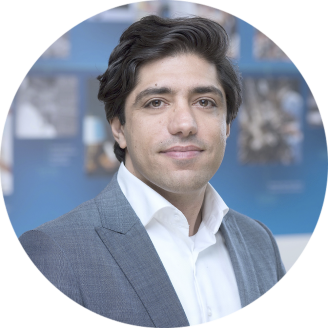
An interview with Vahid Kharidar,
Regional Manager at PerPetum
PerPetum designs, builds, owns and operates solar PV projects and is one of the largest installers in Benelux, with a track record in seven countries and local offices in Belgium and the Netherlands. Its clients are typically industrial, with significant energy consumption, and PerPetum enables them to implement and integrate renewable energy solutions. These include installation of solar PV on land, roofs, or water, with the final projects either owned by the client or financed by PerPetum and third parties and supported with a Power Purchase Agreement to provide financial certainty.
After gaining recognition for building the largest floating solar park in Benelux five years ago, the company has more recently constructed the world’s largest solar car park at Pairi Daiza zoo in Belgium, where it is headquartered. We caught up with Vahid Kharidar, PerPetum’s Regional Manager for the Netherlands, to learn more about PerPetum and get his view on where the industry is going and how fast.




